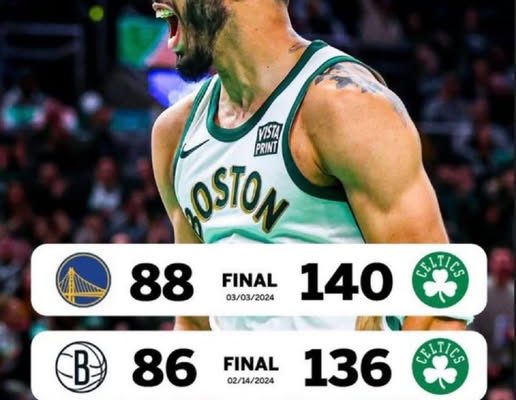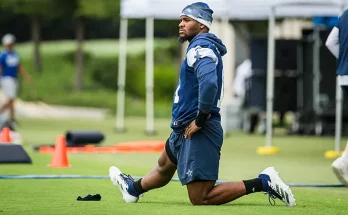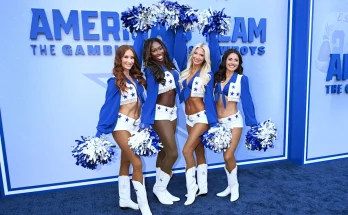The 2023-24 NBA season will be remembered for a lot of reasons, but perhaps nothing stood out more than the way the Boston Celtics stormed through the league, silencing doubts, embracing expectations, and ultimately cementing themselves as champions in a fashion that felt both inevitable and breathtaking. When a team plays as well as Boston did that year, it almost rewrites what fans and analysts expect from a contender. To say the Celtics were really that good is not just an exaggeration born from excitement; it is a statement rooted in reality, numbers, and the eye test that anyone who followed basketball closely could not deny. Boston had all the makings of a dominant team, and they executed at every level, turning potential into achievement.
From the beginning of the season, Boston carried the weight of unfinished business. After multiple deep playoff runs in the Jayson Tatum and Jaylen Brown era, the narrative around the Celtics was that they were talented but flawed, a team that could not close the deal. They had lost to Golden State in the 2022 Finals, and their 2023 playoff exit to Miami had been especially crushing because it came after a season where Boston looked like the best team in the league. That sting gave them a sense of urgency and determination. Management doubled down on the roster, and with the blockbuster acquisition of Kristaps Porziņģis and later Jrue Holiday, the Celtics addressed both versatility and toughness. The result was not just a great team on paper, but a unit that translated into one of the most balanced and dangerous groups ever assembled.
The regular season was a showcase of just how good Boston really was. They finished with the league’s best record, consistently beating elite teams while also rarely slipping against lesser opponents. Their offense was a modern masterpiece, built on spacing, ball movement, and a blend of inside-out scoring that made them almost impossible to guard. Tatum had cemented himself as a superstar, putting up MVP-caliber numbers while showing growth in efficiency and playmaking. Brown complemented him with athletic slashing and improved shot-making, proving he was more than just a sidekick. Porziņģis gave them a stretch big who could punish mismatches, protect the rim, and open the floor in ways Boston had never fully utilized before. And Holiday, acquired to replace Marcus Smart, provided defense, leadership, and championship experience while also being able to step up offensively when called upon. The balance of that lineup meant no single weakness could be exploited consistently, which is a rare thing in the NBA.
Defensively, the Celtics were just as impressive. They boasted size, athleticism, and a collective commitment that made life miserable for opponents. Tatum and Brown, often criticized for coasting defensively in previous years, locked in with more consistency. Holiday, known as one of the best guard defenders of his era, provided elite on-ball pressure, while Porziņģis added rim protection that allowed them to play with confidence. Al Horford, even at his advanced age, remained a glue piece who could guard multiple positions and serve as a defensive anchor. This balance of length, versatility, and IQ meant Boston could switch, trap, or play drop coverage depending on the matchup. Few teams had the personnel to adjust like they did, and it was a big reason why they cruised through stretches of the season.
What also stood out about the Celtics that year was how they embraced the collective identity. For years, the talk surrounding the team centered on whether Tatum and Brown could truly coexist, whether they were too similar, or whether one needed to be traded for Boston to maximize its potential. The 2023-24 season put that debate to bed. Both stars bought into a shared responsibility, sometimes deferring to each other, sometimes deferring to teammates, but always keeping the bigger goal in mind. That sacrifice and buy-in trickled down to the rest of the roster. Role players like Derrick White thrived in their roles, stepping up in big moments while understanding they didn’t need to carry the burden every night. Sam Hauser and Payton Pritchard gave valuable minutes as floor spacers and energy players, showing how deep the rotation was. Every piece fit, which is exactly what championship teams need.
When the playoffs came, many wondered if Boston would falter again under pressure. The East had challengers—Milwaukee, Philadelphia, Miami—but Boston showed quickly that they were operating on a different level. They dismantled opponents with a blend of precision offense and suffocating defense. Unlike previous years where games would slip away due to inconsistency or poor late-game execution, the Celtics closed games with authority. Tatum delivered superstar performances when needed, but what really made Boston frightening was that someone else always stepped up too. Brown had huge games, Porziņģis punished mismatches, Holiday hit clutch shots, and White emerged as a reliable playoff performer. There was never a sense that Boston had to rely on one guy to save them, because the roster had been built to provide multiple solutions.
The Finals were the culmination of everything Boston had worked toward. Facing off against the Western Conference champion, the Celtics entered with momentum and confidence. They played with poise that reflected lessons from past failures. The ball movement was crisp, the defense suffocating, and the stars rose to the occasion. Tatum solidified his place among the league’s elite with performances that reminded everyone why he was a franchise cornerstone. Brown delivered with intensity, often swinging momentum with aggressive drives and two-way play. Porziņģis, when healthy, gave them an inside-out option few teams could handle. Holiday’s defense frustrated opposing guards, and Horford added steady leadership. It was not just that Boston won the title—it was how they did it. They looked dominant, playing like a team that knew this was their time.
For fans, watching the 2023-24 Celtics was both exhilarating and validating. Years of coming close but falling short had created a mix of doubt and hope. When the championship was finally clinched, it felt like a release of all the tension that had built up through those near-misses. It wasn’t luck, it wasn’t flukes, and it wasn’t just a hot streak. Boston had built the best team in the league, carried itself with championship focus all season, and then finished the job. That is why saying the Celtics were really that good is accurate—because they were the standard.
Another reason this championship stands out is the legacy it creates. For Tatum and Brown, it erased the narrative that they couldn’t win together. For coach Joe Mazzulla, it was validation after a year where many questioned his readiness and leadership. For Horford, it was the crowning achievement of a long and respected career. For the franchise as a whole, it was banner number eighteen, breaking a tie with the Lakers and restoring Boston’s place atop the NBA’s historical hierarchy. This was not just another title—it was a moment of franchise-defining significance.
Looking back at the season, what stands out most is the consistency. Boston did not simply get hot at the right time; they dominated from October through June. They had the numbers, the highlights, and the moments of resilience that make champions. They overcame injuries, handled adversity, and grew stronger as a unit. The 2023-24 Celtics were a team that combined talent, strategy, and chemistry in a way that few teams in history have managed. They didn’t just win—they imposed their will on the league.
The championship also reignited the pride of Celtics Nation. Fans who grew up hearing about the glory days of Bill Russell or Larry Bird could now point to their own era of dominance. Young fans who had only known heartbreak and almost-wins finally got to celebrate the ultimate prize. It was more than just a sports victory—it was a cultural moment for Boston, a city that breathes basketball and embraces its team as part of its identity.
In conclusion, the 2023-24 Celtics were indeed really that good. They were the best team in the league, built with the right mix of stars and role players, guided by lessons from past failures, and fueled by a desire to prove the doubters wrong. Their journey from talented underachievers to undeniable champions is a story of resilience, growth, and execution. When they hoisted that trophy, it was not a surprise—it was the logical result of a team that had been better, more complete, and more focused than anyone else all season long. This was their time, and they seized it. The Boston Celtics did not just win the championship—they showed the basketball world what greatness looks like when everything finally comes together.



